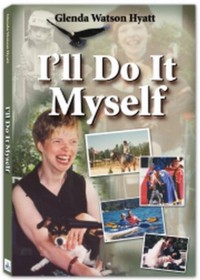What is in a word? The evolution of disability language continues
In a previous post, I shared one indicator of a society’s regard for the disabled lays in the terms used to label them. Words like cripple, invalid and handicap – used to dismiss, discard and devalue individuals seen as different – slowly disappeared as the social model of disability “gave way to the empowerment of people with disabilities through the development of a vigorous disabled identity and self-advocacy movement.â€
For the first time in history, we were empowered to name the labels that define us. Although the discussion continues, sometimes at ad nauseam, the current acceptable terminology is people-first language, which puts the person before the disability. But, even here, there are issues with the word disability.
As Mama Terapeuta, a linguist and mother of a young daughter with cerebral palsy, explains in her post Hablemos (En serio) de Discapacidad, loosely translated by Google Translate to "Let’s Talk (Seriously) Disability":
…disability is defined in opposition to performance and to some extent also health. It is classified by different degrees of ‘problems’ and to define explicitly that ‘trouble’ capabilities must be compared with what is normal for one. What can I say … To me this is a reason for not using the word disability.
With the term "disability", there needs to be an ability, a norm, in order for there to be a disability; disability is measured against an ability and is a measure of inferiority, of being less than.
Rather, Mama Terapeuta favours "functional diversity" – a phrase now commonly used in the Hispanic community. If I understand her correctly, functional diversity acknowledges the differences in abilities, the diverse ways of doing or functioning, while not implying inferiority or less than.
In my mind, “functional diversity†definitely has merit over “disabilityâ€. However, I wonder if using the term in the English-speaking community would lead to confusion rather than enlightenment, at least until the term catches on. I’m also left wondering if other cultures have equally thought-provoking terms.
What are your thoughts on this evolution of language?
If you enjoyed this post, consider buying me a chai tea latte. Thanks kindly.
 Subscribe via RSS
Subscribe via RSS



